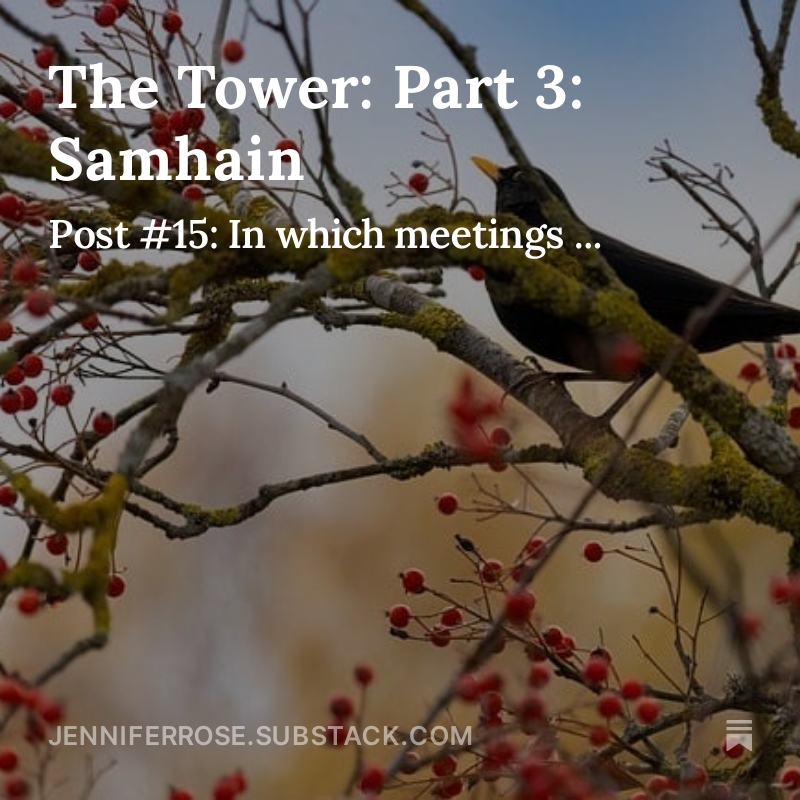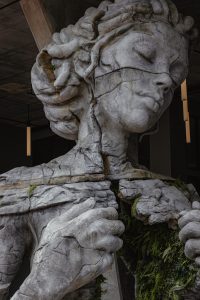Review and Preview
A few weeks ago I explored self-trust. Until I wrote that piece, I had not realized how deeply I distrusted myself. (As a writer, I find nothing clarifies my thinking better than written inquiry. The process uncovers so many unconscious and hidden things.)
In that post I speculated about choosing to trust myself, as trust is a belief, and beliefs can and do change. I thought it would be interesting to consciously trust myself for a few days and see what happened.
What has happened is a profound change in my interior life and my mental health. What happened is the realization that learning to self-love, while a healing and valuable practice, was not, after all, what I most needed.
This still seems strange to me. We are certainly taught love is the greatest feeling, the closest to the Divine we can come, the best we can be as human beings. We define love endlessly, discuss it, long for it, search for it, tell ourselves it will fix everything if only we can find someone to love, if only someone will love us completely, unconditionally, forever and ever (or at least until death do us part), amen.
But my experience has taught me love is changeable and elusive. All kinds of abuse masquerades as love. We don’t all mean the same thing when we express love.
Perhaps most heartbreaking of all, we don’t always value the love that comes our way, and we may learn to distrust it. Every master manipulator in the world recognizes the power of our need for love. Once that need is used against us, we are on our guard against love.
Love hurts. Love can endure, but a withered, starving love living on memories and perhaps based on delusions or the simple call of blood is a desolate ghost haunting our hearts. Love can scar us so deeply we’re never the same.
The daily practice of loving oneself is less complicated than loving another. At the very least, I know what I mean when I say it to myself, and my self understands my demonstration of it. Nothing is lost in translation. I can trust my own love.
And there’s that word – ‘trust’. Trust and love: does one require the other, or are they separate? One is a feeling (love), and one is a belief (trust). Both can be manipulated. In terms of our love and trust of ourselves, both are highly subject to interruption or even amputation by those who influence us, especially as children. If we are repeatedly given to understand we are not lovable or not to be trusted, we internalize those beliefs before we even have language. We don’t learn to love and trust ourselves.
Internalized beliefs are enormously powerful right up until we examine them closely, at which point they can vanish like a wisp of smoke. Once we’ve seen them as false, we become conscious of their pervasive influence and our internal structure changes in astounding ways.
This is what has happened to me.
When I set out to live a few days consciously trusting myself, I realized within an hour my obsessive and unending loop of review and preview. Just like a fish in water, I have no memory of ever living any other way, so I never noticed it before. Well, that’s not true. I noticed it, I just called it anxiety. As I’ve always been anxious and expected I always would be, I didn’t think further about it.
In an example from my childhood, when I was very young, kindergarten age, my mother had a lot of pain and was quite unhappy. I had a younger brother and we had cats and dogs. In an effort to take care of my mother, I learned how to do things like make beds, sort laundry, set up the coffee maker, make orange juice in the blender (frozen concentrate), take care of the animals, tie my own shoes and teach my brother to tie his, etc.
I vividly remember lying in my bed, my brother across the room in his bed, reviewing everything I’d done that day. I had trouble with hospital corners on the beds because I wasn’t strong enough to tuck the sheets in properly under the mattress. Mom had to bend over and do them again, so I failed to help and caused her pain. I didn’t turn a sock right side out when I sorted the laundry. I could tie my own shoes, but I was baffled trying to teach my brother to tie his while facing him. And so forth and so on.
Review: I hadn’t done it right. I hadn’t helped. I hadn’t been perfect. I hadn’t made Mom happy. I had to do better. Preview: Next time I would look at every piece of laundry, be sure nothing was inside out. Next time I would remember how to sort it properly so Mom wouldn’t have to bend down and do it herself. Next time I would figure out a way to get the hospital corners right, but I wouldn’t have to face that again for a week or so. Maybe I’d be stronger or bigger? If I got behind my brother and tied his shoes from that angle, could I do it? I had to do it! It hurt Mom to bend down.
This habit, this ongoing internal review and preview, has never stopped. Whatever I’ve just done, I review it. Whatever I’m about to do, I preview it. Racing thoughts. Circular thinking. Problems with sleep and chronic tension. Adrenal overload and exhaustion. The need to distract, to make it stop. The inability to have a quiet mind. Most of us are familiar with the symptoms of anxiety.
I believe my anxiety has been rooted in my self-distrust. When I decided to behave as though I do trust myself, I became conscious of my lifelong review and preview habit, as much a part of me as my blue eyes. At the same time, I discovered the solution. The minute I catch myself either reviewing or previewing, and it’s many, many times a day, I say, “I trust you,” to myself.
And I stop. I don’t need to review. I don’t need to preview. I did the best I could, because I always do that. I’ll do the best I can, because I always do that.
“I trust you.”
I’ve also realized, after long experience of sorting through my own psyche, this self-distrust is not mine. It doesn’t smell like me. It’s not home grown. It came from someone outside me, like so many of the unmanaged, unacknowledged emotions and beliefs I’ve carried, recognized as not mine, and let go.
I discovered, as I wrote that post on trust, I do trust myself. I’ve always had cognitive dissonance around trust. Those around me didn’t trust me, yet I trusted myself. I trust my intuition. I trust my empathy and sensitivity, I trust my intention to do the right thing, I trust my flexibility and my ability to learn. I trust my ability to love. I trust my ability to think critically and recognize the truth, no matter how unwelcome. When I assure myself of my trust, it’s not a lie. It’s a truth buried for years under trauma.
I suspect many of us review and preview, consciously or not. It’s wholly ineffective in terms of healthy functioning. It makes us less flexible and resilient. It tires us out, creates long-term chronic stress, and is a constant no-confidence vote we give ourselves. It doesn’t make us more perfect; in fact, it does the opposite because it encourages us to be brittle and fearful. It doesn’t stop us from making mistakes. It turns us away from presence and authentic expression and towards behaving like automatons with a rigid script.
It gives us anxiety.
Most of all, reviewing and previewing doesn’t keep us safe. It doesn’t help us feel loved.
The compulsive habit of reviewing and previewing took up an extraordinary amount of space in my mind and required enormous quantities of energy and attention. Without it, I feel an internal spaciousness I’ve never had before. I read more. I write more. I can rest and relax. I’m far less driven, far more comfortable in my own skin. I’m more present and mindful in the moment, and with my feelings and my body.
I’m far less anxious.
Learning to love myself has been a gift. Reclaiming trust in myself has changed my life.
Questions:
- Do you love yourself? If not, why?
- Do you trust yourself? If not, why?
- If you could only have one, would you prefer others to trust you or love you?
- What do you think is more important socially: love or trust? Why?
Leave a comment below!
To read my fiction, serially published free every week, go here: 

